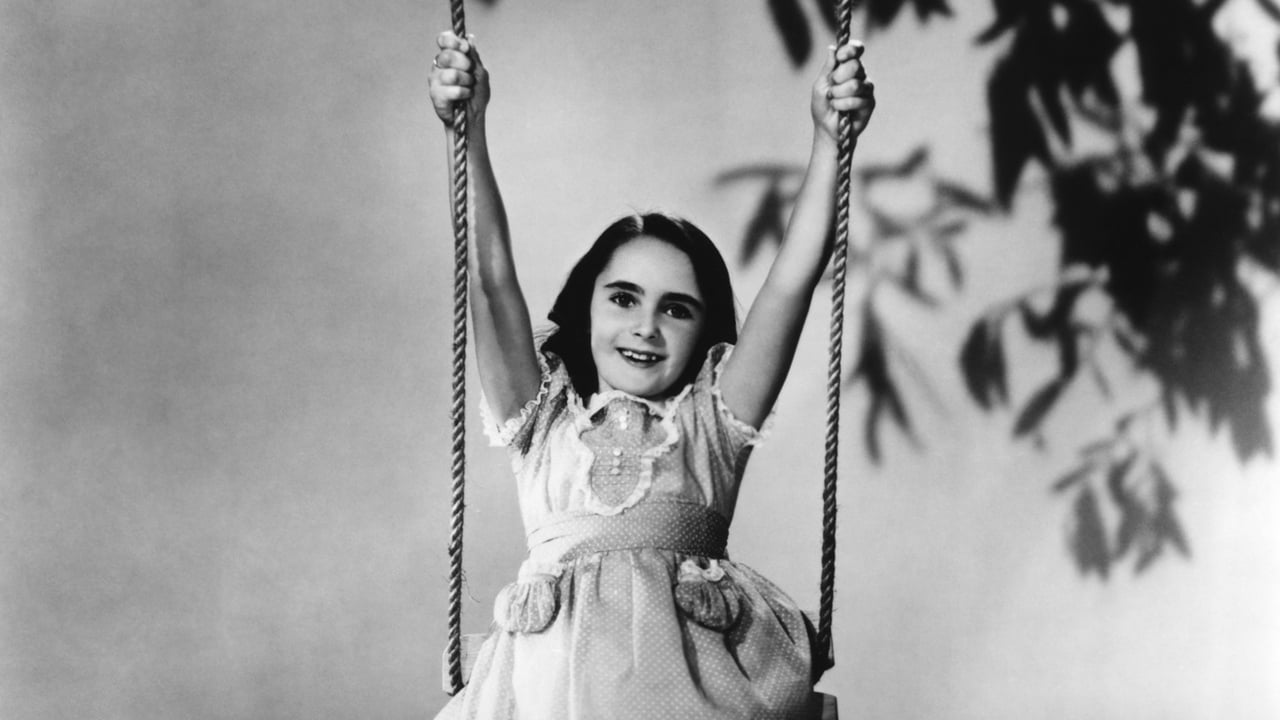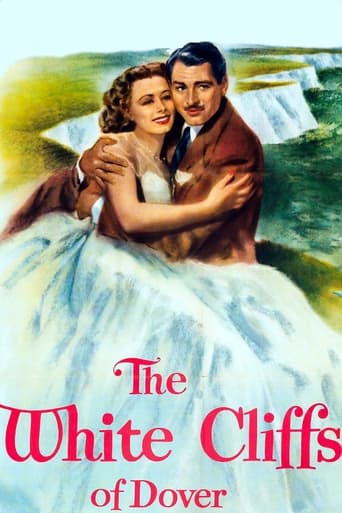EssenceStory
Well Deserved Praise
FuzzyTagz
If the ambition is to provide two hours of instantly forgettable, popcorn-munching escapism, it succeeds.
Doomtomylo
a film so unique, intoxicating and bizarre that it not only demands another viewing, but is also forgivable as a satirical comedy where the jokes eventually take the back seat.
Married Baby
Just intense enough to provide a much-needed diversion, just lightweight enough to make you forget about it soon after it’s over. It’s not exactly “good,” per se, but it does what it sets out to do in terms of putting us on edge, which makes it … successful?
calvinnme
White Cliffs of Dover was made to stoke the flames of patriotism. The film is largely Dunne as a 50 something WWII nurse awaiting a large number of casualties as she looks back on her life in England.Her memories consist of the tale of a Yankee girl, Irene Dunne as Susan Dunn, who goes on a two week vacation to England with her father and on her last day there meets a member of the English gentry who is instantly smitten by her and talks her into staying and marrying him. At first Susan feels out of her element as Lady Ashwood, but she quickly finds her footing. She and her husband, Sir John Ashwood, don't even have time for a honeymoon as WWI starts and he is off to fight with his regiment. After three years he finally gets a few days leave, but it is long enough to conceive his son, John Ashwood Jr., or John Ashwood II as the British would say.Irene Dunne always gave good subtle performances in parts that could have easily gotten ham-fisted, and this role is no exception. Frank Morgan as her Yankee dad is a revelation as he is for once not the befuddled comic relief but a spirited American father who wants his daughter home in America before her marriage, and safe from the Nazi bombs as the winds of a second war approach. C. Aubrey Smith lends terrific support as Colonel Walter Forsythe, considered a crackpot at the boarding house where he and the Dunns were staying during their trip, because he claims to have a standing invitation to the most exclusive ball in England, but seems to just be a common pensioner. Well it turns out he really can turn pumpkins into carriages after all. Roddy McDowell plays John Jr., and he is smitten by one of the daughters of the tenant farmers on the estate played by a twelve year old Elizabeth Taylor in only her third credited role. Their scenes together are just too cute. As with most of the WWII films there are a few lines and a few scenes that get over the top just a bit. There are the American soldiers marching through the streets of London to rousing patriotic songs played by a military band as the film comes full circle. There are the two German preteens who are friends of John Jr. during the early 1930's who just happen to erupt into Nazi propaganda at the dinner table. I was surprised one of them didn't put a comb under his nose and start imitating the Bohemian corporal. And then there is grief that takes all of 15 seconds in spite of its cruel irony because you just HAVE to keep that stiff upper lip! But it's not overdone for a film that is over two hours long, and it does take that long to do the tale justice.
jzappa
Irene Dunne is all in all herself, tender, transformative and powerful as an American girl who travels to England and falls in love with an English member of the aristocracy. Beautiful Irene marries the Englishman but their honeymoon is cut short on its first day as World War I breaks out. Director Clarence Brown's leisurely mood effect causes us to feel as disrupted as they do. Perhaps it is the soothing joy derived from the old-style black-and-white 35mm Spherical look, a classicism in George J. Folsey's cozy cinematography, that creates such a peaceful atmosphere. Believe me: This feeling is augmented by seeing it on a VHS tape, almost as though you are watching a timeworn relic. When the film quietly, serenely begins, Irene reflects upon her feelings relating to her life in England, a life she never expected to lead from event to event beginning with her purely dabbling arrival. The moving musical score fits like a velvet glove over the sustained close shot of her gorgeous face and the iceberg-thawing sound of her voice.The backbiting between Irene and her English counterparts early in the film is funny, posing one of the movie's unanxious emotional successes which as well include strong romantic and maternal joys and longings, WWI, brief bursts of rage, mourning, WWII, and the like. A scene in the movie circa the early 1930s sends a chill down the spine, illustrating two polite adolescent German boys, part of an exchange program, staying at the English family's countryside manor. Intimating they were part of early Nazi invasion plans, the boys let it slip in a conversation's startling turn for the less comfortable that they are pondering how the estate's large green would be perfect on which for troop gliders to land.
PudgyPandaMan
I really liked this movie. Although much is predictable about the plot, I found the music, cinematography, the history, aristocracy etc. very enjoyable. This clearly is a propaganda piece, but you can't help but find yourself swept away in the patriotism willingly.It reminds us of how our great country was once heroes to the world. We were the great saviors of freedom. It is a little sad now, some 60+ years later, that our country has lost favorable opinion in the eyes of the world. The parade scenes where Irene Dunne's character watches the US troops arriving and marching through town can bring tears to your eyes.The characters are all quite endearing and believable. Dunne is quite sweet. Marshal is so dashing. As a woman, I can imagine myself being swept up in such a man at the onset of WWI ( as Dunne was) or WWII (which the viewers themselves were in the midst of).The intertwining of US & British history is a nice reminder that we are really made from the same beginnings in our country. Even though we eventually sought our freedom from the British, which is pointed out in the movie, it also points out our common heritage in being derived from Sir Walter Raleigh & the Mayflower. Our countries have been great allies over the past century. I'm sure there have been prejudices between yanks & Brits, as pointed out in the scene where Dunne breaks down over her future in-laws prejudices of Americans. But clearly the movie is designed to foster a common bond among the US & Britain, while acknowledging our differences.My absolute favorite scene is at the end. It is especially poignant - the dying son is relaying to his mother about an American soldier that said before he died : "God would never forgive us, neither England or America, if we break the faith with our dead again", that he would "really start to fight the day the war ended, for a good peace, a peace that would stick." Wow - what a message that must have truly resonated with the WWII audience, especially those who had also lived through WWI. I don't think my generation can relate to having been through 2 such costly wars back to back. Women who lost husbands in the first war were now faced with the loss of sons in the 2nd war, as Dunne's character was. What tremendous sacrifice was made by that generation! We should be forever grateful!
nyescape
This was an incredible War movie which spanned WWI and WWII. It was a romance/drama. Irene Dunne is the female lead who falls in love with and marries a man who soon goes off to fight in France during World War I. He dies and she had his child, a boy.The boy grows to manhood and is played by Peter Lawford. As the movie ends, Dunne is seeing her son, Lawford go off to fight in WWII. You can see the pain and the pride in Dunne's eyes.It was a fabulous movie. It dramatizes the great sacrifices made by the British in both World Wars. Britain lost so many of her sons in WWI, I believe the stats were approximately 50% of men between the ages of 18 and 45. The movies points up the fact that the loses, pain and suffering of the English were about to be revisited in WWII.I can appreciate this and other war movies as I am the mother of a Marine who is about to be sent to Iraq.

